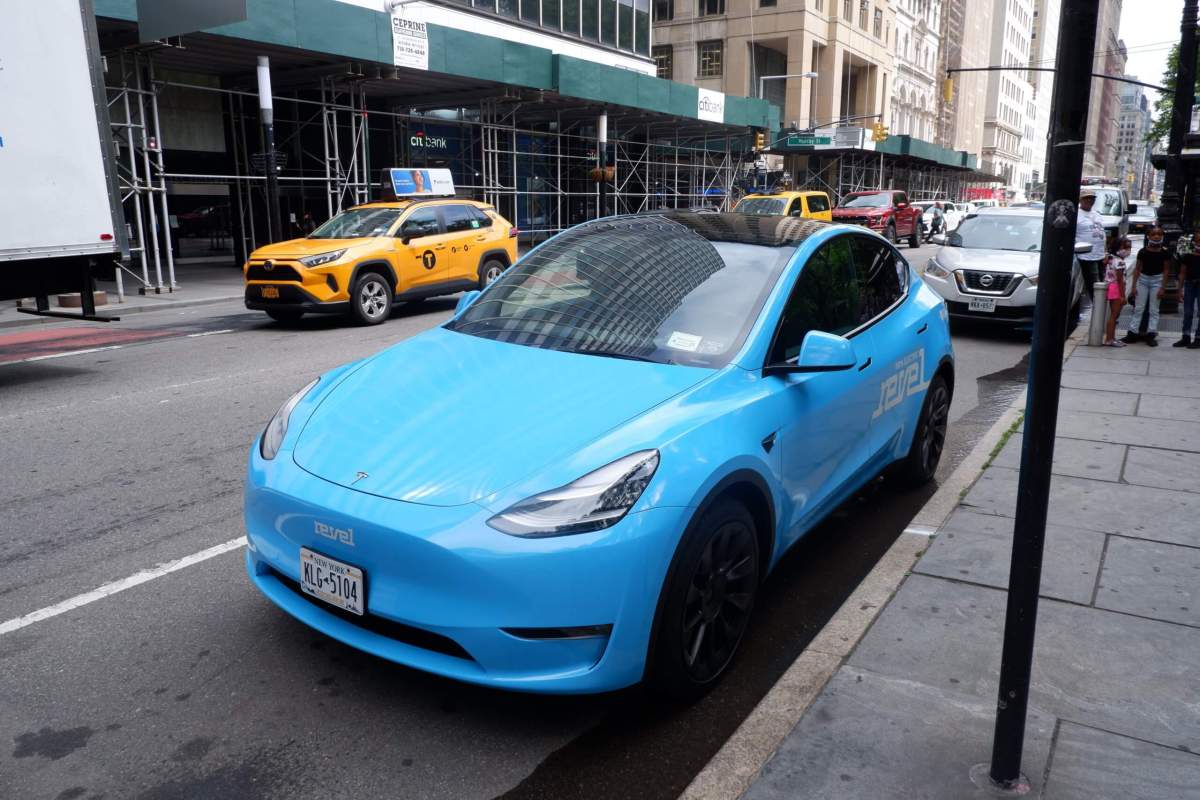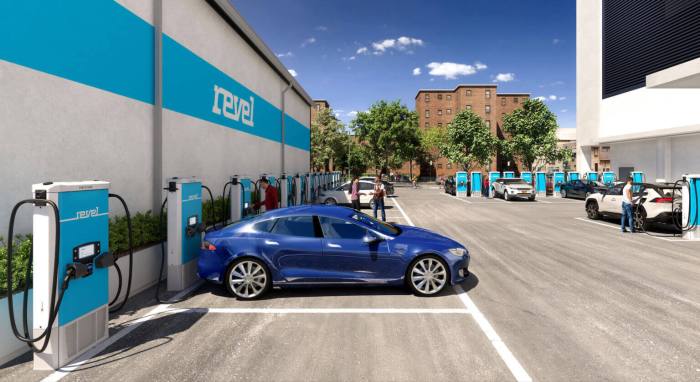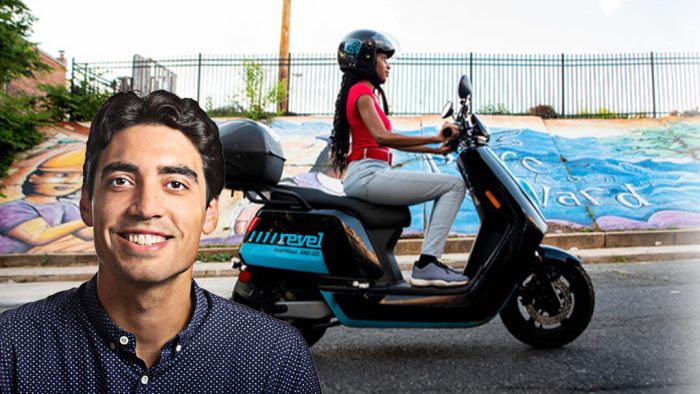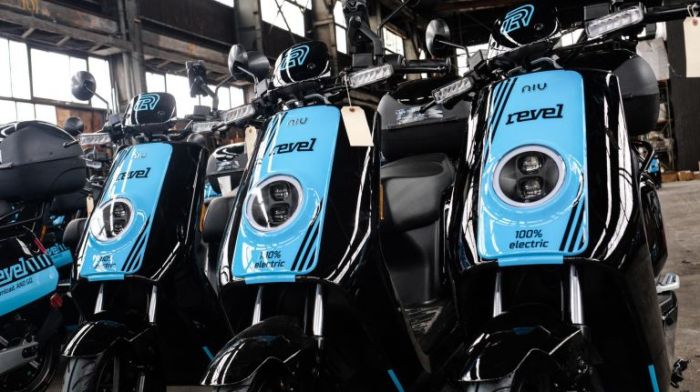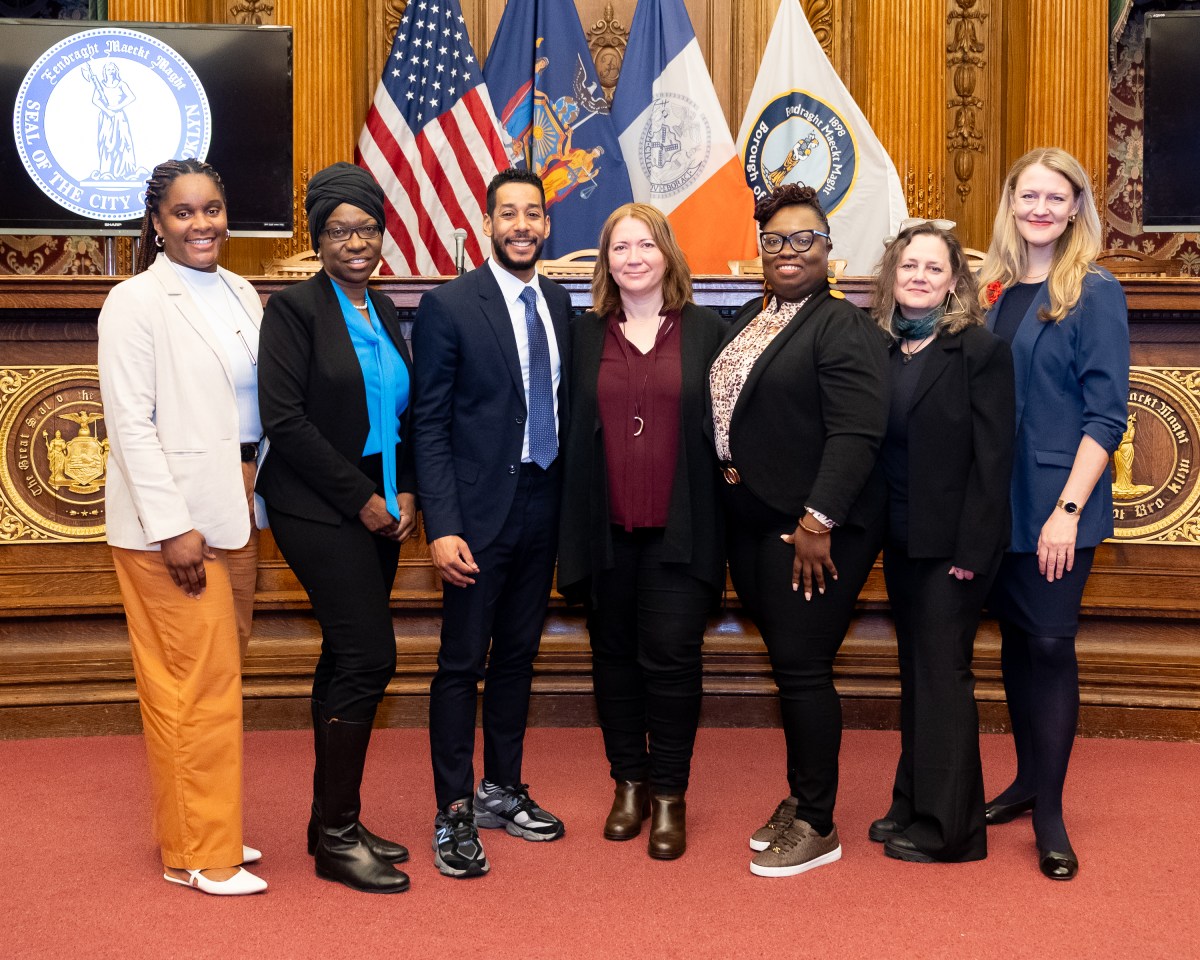Brooklyn e-scooter sharing firm Revel won’t be able to use a city loophole to launch its all-electric cab service on the streets of Downtown Manhattan after the Taxi and Limousine Commission voted Tuesday to remove an exemption for electric cars from its cap on new for-hire vehicle licenses.
“We will not be repeating the same mistakes of the past. We already have a cap and a process in place to look at issuing new vehicle licenses holistically, based on the need of the market and the needs of our city,” said TLC Commissioner Aloysee Heredia Jarmoszuk at the June 22 public hearing.
The agency’s move dashed the hopes of Revel to roll out a fleet of 50 blue-branded Teslas by using a city incentive for cab drivers to go electric to bypass a three-year-old limit on new for-hire vehicle licenses.
Mayor Bill de Blasio introduced the cap in 2018 after companies like Uber and Lyft flooded the ride-hailing market, threatening to displace yellow cab drivers and clog Manhattan’s streets.
The only way to get around that was to either apply for a new license with electric vehicles or wheelchair-accessible cars.
But the commission voted on a new rule Tuesday to end that exemption for EVs, which also happened to be Primary Day in the city, with Commissioner Jarmoszuk saying there was currently a massive oversupply of for-hire vehicles.
The agency has issued licenses to 96,900 cars, but 86,134 — or 89% — have not performed a single ride since March 1, according to the TLC guru.
“Why would the TLC license more vehicles when there are so many that are so many that are not in use right now,” she said. “There is no shortage of licensed vehicles right now in New York City. The number of licensed vehicles outweighs the demands for rides by passengers. These are facts, and this is the math, and this is our reality.”
Revel, known for its omnipresent blue mopeds, announced their venture into the e-hail market in April, with 50 cars slated to serve riders in Manhattan below 42nd Street juiced up at a charging ‘superhub’ the company planned to launch next week at the old Pfizer factory in Brooklyn.
The startup’s founders touted the service as a counter to existing rideshare companies like Uber and Lyft, by hiring their drivers as employees with paid time off and healthcare benefits as opposed to gig workers.
On Monday, the firm’s leaders and supporters rallied outside City Hall in advance of Tuesday’s meeting calling on the city to allow them to move forward.
At the Tuesday virtual hearing, chief executive officer Frank Reig pleaded with the commission not to end the EV exemption, saying its service would not grow as fast as those that have come before, because they would need to expand charging stations at the same time.
“Revel isn’t going to flood the streets with thousands of cars at once like other operators have in the past. In fact, we literally can’t do that. A for-hire electric fleet needs charging infrastructure and this city has none of that,” Reig said. “Our goal is to do a multi-year buildout of charging infrastructure along with our rideshare service and you won’t see any real growth in one without the other.”
The Commission heard more than two-and-a-half hours of testimony from advocates, union reps, and Revel employees for and against the rule change, but eventually voted with 5 in favor and 1 against to adopt the change.
Jarmoszuk said that the agency would work with drivers to help them move from gas-guzzling cars to electric ones, but that the move did not have to come at the expense of the cap.
“The TLC will do everything it can to support owners who want to transition their licensed vehicles from gas powered to electric. And we welcome competition and innovation to make that happen,” she said. “We cannot let an unlimited number of new vehicles further destabilize the market, regardless of how they are powered. More cars today will not be good for the industry, it would not be good for drivers, it would not be good for the riding public, and it most certainly would not be good for the environment.”
In response to the vote, Reig declined to give specifics on his company’s plans, but said:
“This decision doesn’t change the fact that New York City needs an alternative to the predatory leasing system that exploits drivers and pollutes our environment, and Revel is exploring ways to accomplish that.”



